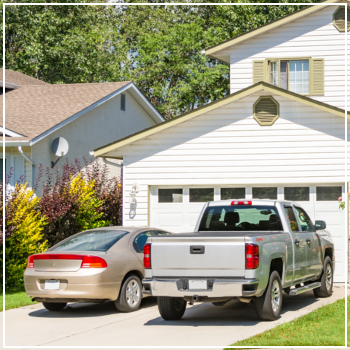While these measures are crucial for slowing the spread of COVID-19, your car is sitting idle in the driveway or garage. Less driving means less gas consumption, but neglecting your vehicle can lead to several issues, including a weak battery, rodent infestations, and rust buildup. Here’s how to keep your car in top shape during this unusual time. Driving your car at least once a week helps maintain its performance. A 20-minute drive ensures the engine runs smoothly, the battery stays charged, and fluids circulate properly. It also prevents brake rotors from rusting, belts from cracking, and tires from developing flat spots. Even if you have an electric or hybrid car, it's important to keep the battery active—consider using a trickle charger or removing the battery if the car will be unused for long periods. Whether stored inside a garage or outside on the driveway, your car is exposed to the elements. Dust, bird droppings, and UV rays can damage the paint and interior. To protect your investment, clean both the inside and outside regularly. Wipe down all surfaces with a 70% isopropyl alcohol solution and a microfiber cloth. Avoid harsh chemicals like bleach or ammonia, as they can harm sensitive materials. If possible, cover your car or park it in the shade. If not, make it a habit to wash or spot-clean it frequently to prevent dirt and grime from settling into the paint. Leaving your car parked for extended periods can cause tire flat spots, especially in cold weather. Make sure to check the tire pressure regularly and inflate them to the recommended PSI. This simple step can help avoid costly repairs later on. Keeping the parking brake engaged for weeks can cause the brake pads to stick to the rotors, leading to rust and potential damage. If you're not driving often, it's better to release the parking brake to avoid this issue. Rats, mice, and squirrels are attracted to cars that sit still for long periods. They may build nests in the engine compartment or chew on wires, causing serious problems. Periodically check under the hood and around the wheels for signs of intrusion. If you’re planning to leave your car unused for months, take extra precautions. In addition to regular cleaning, consider changing the oil, filling the gas tank, and adding a fuel stabilizer. Check all fluids and ensure your car is protected from the elements. Many auto shops, like DaSilva’s Auto Body, are still offering essential services, including “No Touch†maintenance options to keep your vehicle running safely during the pandemic. Schmidt Heat Exchanger Gaskets
API was founded in 1947, and ten years later, Basco, a brand specializing in the production of shell and tube heat exchanger, was founded. After more than half a century of development, API Heat Exchanger now owns four well-known brands: Basco, Whitlock, Schmidt and Airtech, and has more than 800 employees worldwide. In more than 100 years of development, API heat exchanger has always been providing OEM customers and users with economical and high-quality products. The product design of API heat exchanger is innovative and widely used. Products include standard or according to customer requirements design of shell, tube fin, detachable, soldered, welded, semi-welded and brazed aluminum plate fin and brazed aluminum water tank.
Schmidt Heat Exchanger is one of the full service producers of industrial heat exchangers and heat transfer systems.
As the world's leading plate heat exchanger plate manufacturer and seller, Baode has a wide variety of domestic plate heat exchanger plates, more models! It can provide all common types of plate heat exchanger plates from well-known brands at home and abroad (including: AlfaLaval /GEA, TRANTER, SONDEX/HISAKA/APV/Thermowave /Schmidt/FUNKE/VICARB/LHE, etc.). Schmidt Heat Exchanger Gasekts,Schmidt Plate Heat Exchanger Gasekts,Schmidt Heat Exchanger Seal Gasket Jiangsu Baode Heat-Exchanger Equipment Co.,LTD , https://www.baodehex.com With many states enforcing shelter-in-place orders, the daily commute has come to a halt for most Americans. People are staying home more, only venturing out for essential trips like grocery shopping or picking up prescriptions.
With many states enforcing shelter-in-place orders, the daily commute has come to a halt for most Americans. People are staying home more, only venturing out for essential trips like grocery shopping or picking up prescriptions.Keep Your Car Clean
Check Your Tires
Use the Parking Brake Wisely
Watch Out for Pests
Plan for Long-Term Storage